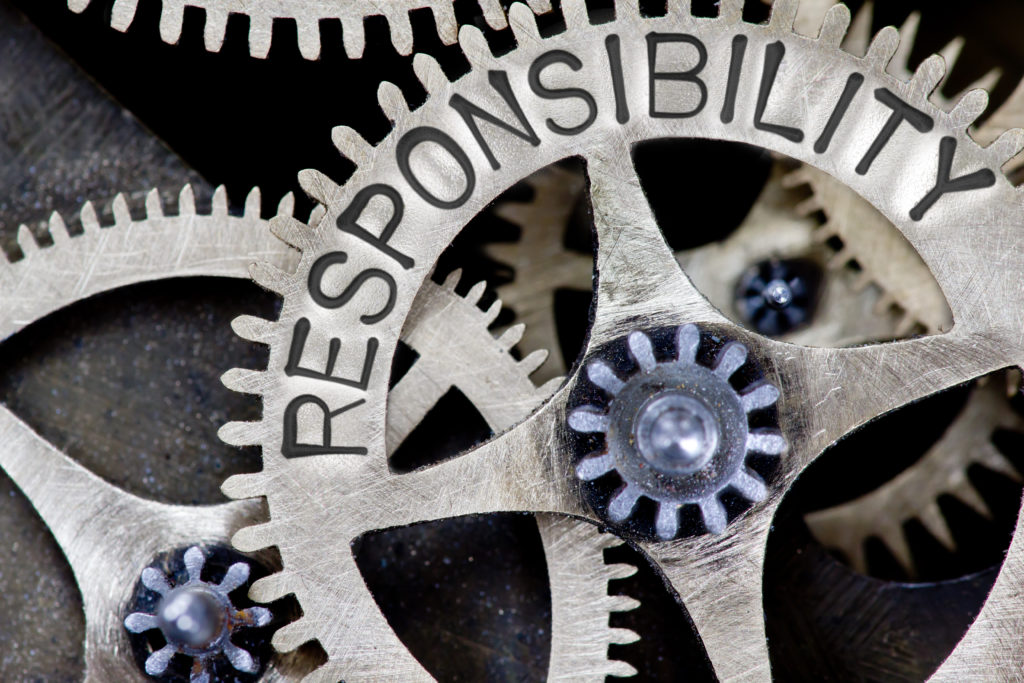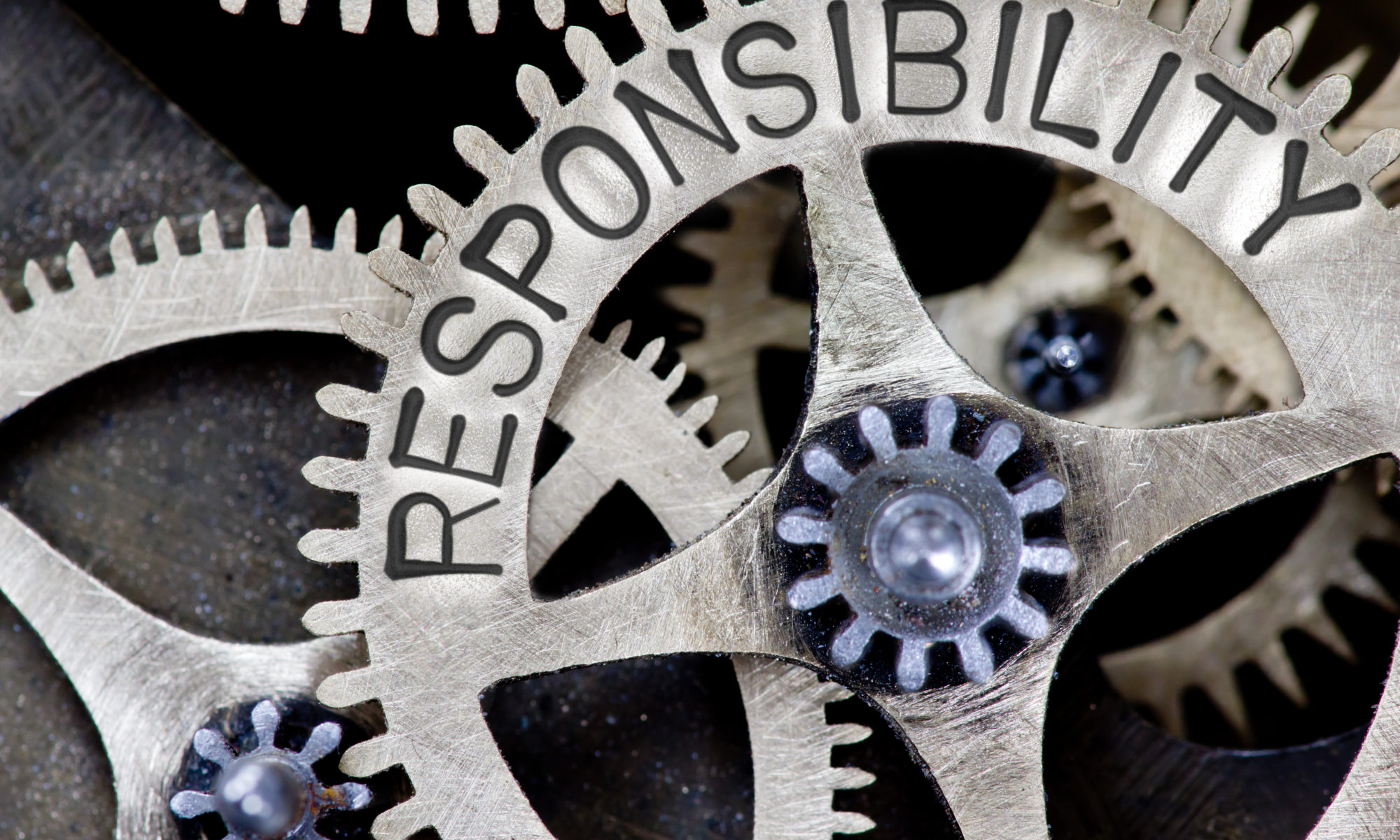Tero Kaarlela

Research ethics concern everyone working in the field of research. At Centria many of us participate in researching multiple topics of interest such as economy, robotics, healthcare, chemistry, and electricity. Ethical thinking is required from the first preparation steps to final reporting phase during our projects. Ethical thinking builds a solid foundation for reliable, honest, and sustainable research work.
Open Science is a movement towards transparent and accessible science data. Open Access publications are just one part of open science movement, which will hopefully change the way we work enabling more open, collaborative, and accessible research. This article presents ethical issues usually present at international and national research projects and main building blocks of open science. Open science and research ethics are closely related and support honesty in research.
Researcher’s work at Centria consists of participating in national and international research projects. Usually several parallel projects are running, either international or national projects. Projects begin with a planning phase, during which the project’s goals and national or international contributions are considered. Ethical importance is already present in the planning phase, at this stage it is important to consider whether the goals and content of the project in question honestly and justifiably fit the theme of the sponsor’s program period. For example, in the 2021–2027 program period of the European Regional Development Fund (ERDF), social equality, carbon neutrality and the green transition are clearly emphasized (Centre for Economic Development 2021). In the planning phase, the first task is to carefully read through the goals of the program period and plan projects that meet the needs of the sponsor’s program. Projects that are written from the beginning to meet the sponsor’s guidelines produce nationally and internationally meaningful research results. A project application that is well-founded and meets the objectives of the program period is most likely accepted for funding.
The competition for national and international funding is high, and the decision-makers of the sponsor do their best to finance projects that advance national business activities and education in the best possible way. In addition to the ERDF, the municipalities and provinces in whose area the development project is implemented, companies, and Centria University of Applied Sciences participate in the financing of the projects with their share of self-financing. When presenting the project to municipalities and companies, it is important to present the project’s goals, budget and schedule realistically. In addition to this, the companies must be told honestly about the topics that are researched and implemented during the project. In ERDF projects, direct development work to companies is not allowed, instead technology demonstrations, information sharing, and research reports are. During the project, the researcher’s most important task is to act in accordance with the work packages and plan specified in the project application. Publishing research results is an essential part of research work and research project activity. Producing reliable information is one of the most important ethical factors of the researcher’s profession (Muukkonen 2019).
The results of the research work are often published in international conferences, events, magazines, or journals. In robotics research, robotics conferences such as ICAR and I-ROS are important dissemination channels. In addition to conferences, articles are published in automation and robotics magazines such as Automaatioväylä. During writing publications, it is important to remember copyright, the accuracy of the research results and the recognition of the work done by other researchers on the topic. For example, pictures may only be published if they have been taken by the author himself or permission has been requested separately from the party having the copyright. If there are people in the pictures, the pictures should be taken in such a way that the people appearing in them are not recognizable. If the photos were taken at some company’s premises, permission for publishing needs to be requested from the company. The easiest and most straightforward way is to only use photos taken by yourself, which have been photographed at public events such as trade fairs or other public premises, or use Adobe Stock for finding pictures. Centria has an Adobe Stock account and after finding pictures you need to request permissions to publish them.
Respect for the work done by other researchers is reflected in the publications as appropriate references to their work. Presenting the thoughts and observations of other researchers and referring to them in one’s own publications indicate good background research and respect the work done by fellow researchers in the past on the topic. The results of the research project activities are also often published in the project reports at the meetings of the project advisory board. The advisory board often consists of representatives of municipalities and companies. Honesty, openness, and precision are necessary when presenting the results of projects to the advisory board. The advisory board can guide the progress of the project in the right way only if they are given honest information about the progress of the project and the achievement of the goals. Company representatives have often emphasized the responsibility of researchers in terms of honest reporting of research results, for example research results presented as too positive may undermine the credibility of research work.
Finnish Advisory Board of Research Integrity (TENK) appointed by the Ministry of Education and Culture has published guidelines on good scientific practice. The aim of the guidelines is to promote good scientific practice and prevent scientific dishonesty (TENK 2012). TENK defines nine principles of good scientific practice:
1. Honesty, care, and accuracy
2. Ethically sustainable data acquisition and evaluation methods
3. Respecting the work of other researchers
4. Appropriate research planning, reporting and data recording
5. Research permits have been acquired, and preliminary assessments have been made
6. Agreeing on rights, responsibilities, and obligations
7. Disclosure of funding sources and other affiliations of the parties involved
8. Identifying conflict of interest
9. Good personnel and financial management
Working according to the nine points mentioned above forms a good basis for ethically sustainable research work. Fraudulent research results violate good scientific practice. Fabrication, distortion, plagiarism, or stealing is not approved in any circumstances. Neither is negligence including belittling, careless reporting, incomplete recording, self-plagiarism and misleading (TENK 2012). If violations are suspected or reported investigation will follow. The investigation of suspected violation begins with a
written notification and continues after the preliminary investigation to the actual investigation. The actual investigation is carried out by a research group established by the institution principal and violating good scientific practice can in severe cases lead to criminal sanctions (TENK 2012).
Open science is a movement towards more transparent and accessible science. Open Scholarship, Open Data, Open Access, Open Education and Open Source all fit under the umbrella of Open science. Vision for Open science and research in Finland is following: ”Open science and research are integrated in researchers’ everyday work and support not only the effectiveness of research outputs but also the quality of research. The Finnish research community is an international forerunner in open science
and research” (Open Science Coordination in Finland 2020).
Open scholarship promotes active collaboration and sharing of data and knowledge prior to publishing results. (Aalto University 2018). Utilizing platforms such as Google Docs or Overleaf during drafting and writing publications makes collaboration with fellow researchers trivial. To effectively share personal libraries of references, Mendeley or Zotero are good solutions (Fernandes et al. 2017).
Open Access is about freely accessible scientific information (Tampere University Library 2022). Open access publications are freely available to read for everyone without any fees. Benefits to the writer are higher citation rates and that writer owns rights to publications after publishing (Ruth 2019). In article-based dissertation, open access journals such as MDPI Machines enable the author to own rights after publishing. Elsevier also offers open access publishing on journal publications.
Open Data is data that is available for free for anyone to use. Data is produced by the government, companies or individuals. Data itself is digital material such as statistical information, maps, images, videos and 3D-models (Helsinki Region Infoshare 2018). Open data promotes and encourages the transparent sharing of information. The datasets that will be published during my research work will be available on public data catalogs. Datasets will not contain individual sensitive information, only anonymous general data. Gathering names or other individual information from participants should be avoided if it is not absolute necessary by project. Zenodo is an example of open access repository for publishing datasets created during research projects.
Open education aims to improve educational access, effectiveness and equality. (Cronin 2019) There are many talented students studying in universities of developing countries without a possibility to buy books or participate in laboratory exercises with modern equipment. Researchers in developed countries could provide these talented students equal possibilities to learn by writing open materials, creating possibilities for distant learning and by sharing knowledge of good learning practices.
Open Source software and platforms should be preferred in research. Experiments, software prototypes and proofs of concepts created with open source components can be easily reproduced anywhere in the world. If actual coding or modification of existing source code is required, code can be shared in software hosting service such as GitHub. Software hosting services enable collaboration with fellow researchers during and after research projects. Software hosting services enable easy versioning, commenting and sharing of code and provide all tools necessary for aforementioned activities.
Open Peer Review is a revision of traditional peer review process of scientific articles. Instead of an anonymous and closed review process, identities of reviewers are revealed, review reports are published with articles and reviewing is open to readers (Enago Academy 2022). Open peer review enables everyone to see how the review process improves the quality of publications. Reviewers bring an outside view to the paper and enrich the contents of the paper.
As a conclusion, ethical questions concern everyone working in research and participating in research projects. All researchers and members of the research team are responsible for following good scientific practice (TENK 2012). Ethical consideration must be present in all phases of research work, from research planning to the publication of research results. The researcher is always responsible for maintaining his own professionalism and his ability to produce information (Muukkonen 2019). You can maintain your own professionalism and ability to produce information by following and reading research publications. Open science is closely related to ethical way of conducting research. Open science is a movement promoting openness, respect and transparency, the three most important elements of research ethics. Open science promotes free access to research data, source code, learning resources and scientific publications.
References
Aalto University 2018. Culture of Open Scholarship. https://www.aalto.fi/en/open-science-and-research/culture-of-open-scholarship . Accessed 29 July 2022.
Cronin, C. 2019. Open education: Walking a critical path. http://eprints.
teachingandlearning.ie/4345/1/Cronin%20chapter%20in%20Conrad%20%26%
20Prinsloo%202020.pdf. Accessed 29 July 2022.
Centre for Economic Development, Transport and the Environment 2021. Funding possibilities 2021-2027. https://www.ely-keskus.fi/rakennerahastot-2021-2027 . Accessed 27 July 2022.
Enago Academy 2022. What Is Open Peer Review? A Definitive Study. https://www.enago.com/academy/what-is-open-peer-review-a-definitive-study/ . Accessed 29 July 2022.
Pedro Fernandes and Rutger Vos 2017. Open Science, Open Data, Open Source. https://arca.igc.gulbenkian.pt/bitstream/10400.7/854/1/Vos.R.A._OSODOS_%282017%29.pdf . Accessed 29 July 2022.
Helsinki Region Infoshare 2018. What is open data? https://hri.fi/en_gb/support/what-is-open-data/ . Accessed 29 July 2022.
Muukkonen, Petri 2019. Tieteen etiikan keskeiset ongelmat ja tutkimuseettiset periaatteet Suomessa. https://journal.fi/tt/article/download/2680/2454/0. Accessed 14 July 2022.
Open Science Coordination in Finland 2020. DECLARATION FOR OPEN SCIENCE AND RESEARCH (FINLAND) 2020–2025. https://edition.fi/tsv/catalog/view/79/29/192-1 . Accessed 29 July 2022.
Ruth, A. 2019. Publishing an article-based dissertation. https://vastuullinentiede.fi/en/publishing/publishing-article-based-dissertation . Accessed 29 July 2022.
Tampere University Library 2022. Open access. https://libguides.tuni.fi/open-access/ . Accessed 29 July 2022.
TENK 2012. Responsible conduct of research and procedures for handling allegations of misconduct in Finland. https://tenk.fi/sites/tenk.fi/files/HTK_ohje_2012.pdf. Accessed 22 July 2022.
Tero Kaarlela
Lehtori (sähkö- ja automaatiotekniikka)
Centria-ammattikorkeakoulu
p. 040 487 7513


